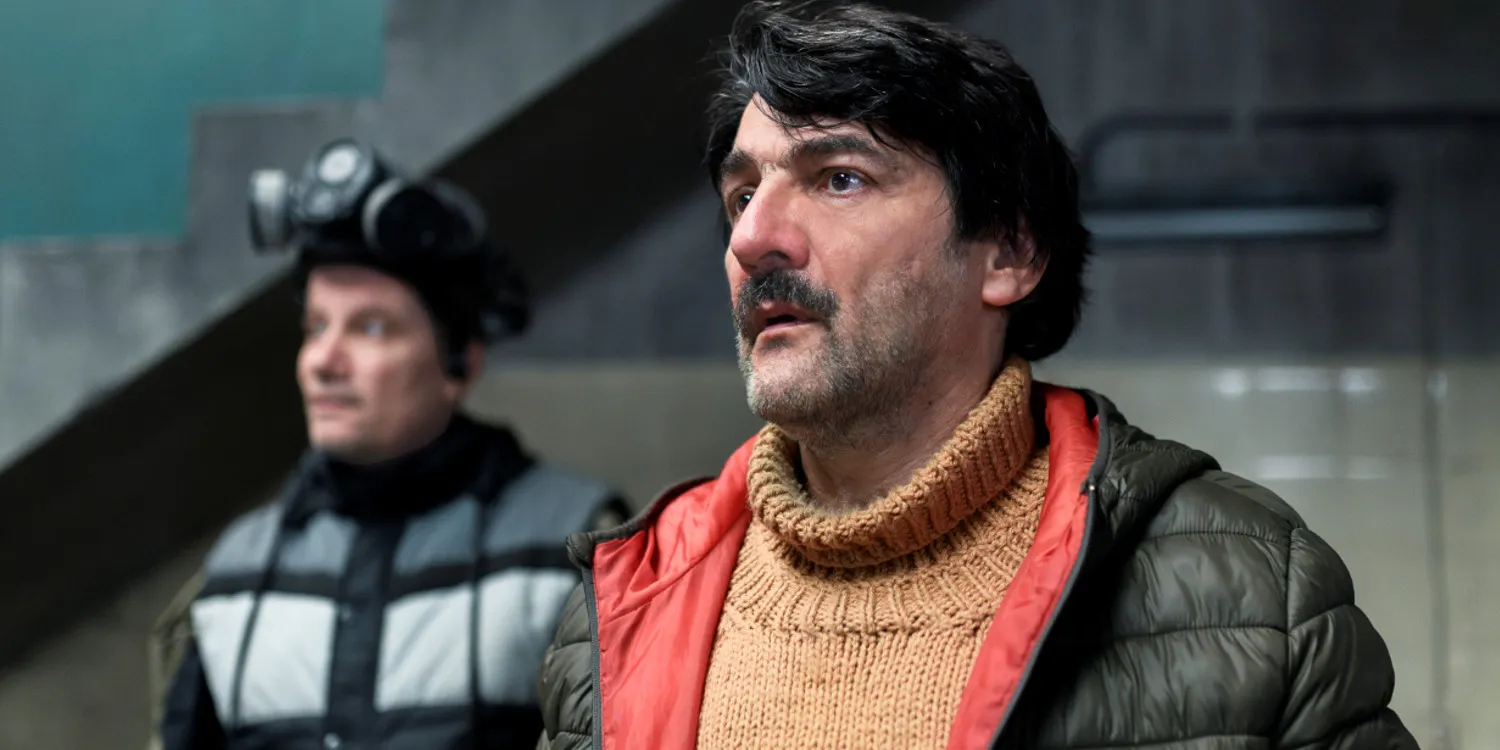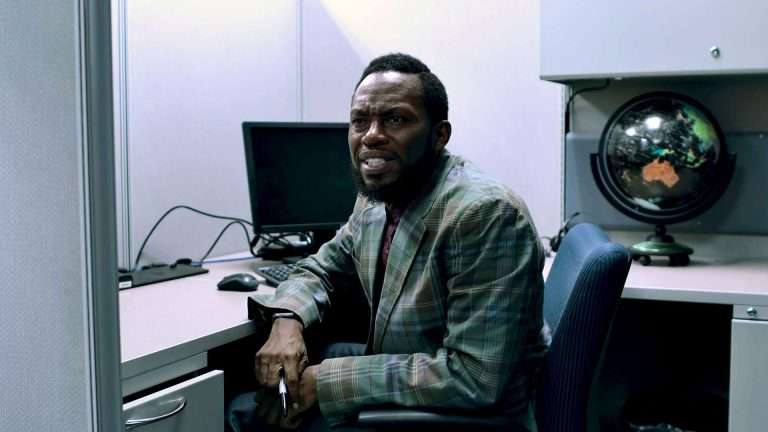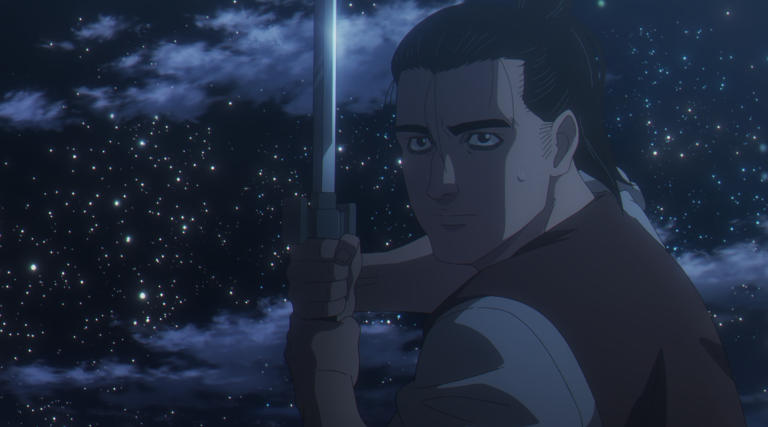Few sci-fi series in recent memory have arrived with the quiet force of The Eternaut. From its haunting depiction of a silent snowfall to its layered narrative of survival, time distortion, and alien control, the show crafts a singularly bleak atmosphere that lingers long after the final credits. As the last episodes dropped, expectations ran high—not just for answers, but for emotional and thematic closure. The mystery of the whiteout, the elusive threat of the Hand, and Juan Salvo’s fractured journey through time all demanded a deeper look. What follows is an attempt to unravel the ending of The Eternaut, explained not just through plot, but through character, emotion, and idea.
The Cataclysmic Whiteout and Juan’s Time-Altering Quest
At the heart of The Eternaut lies the whiteout: a lethal snowfall that descends without warning, wiping out nearly all life in Buenos Aires. The origins of this phenomenon are left vague in the early episodes, intensifying the creeping dread that permeates every scene. Survivors are left to navigate a world that’s not just hostile, but unknowable. This sense of fear and disorientation grounds the story, making each moment of survival feel hard-won and tenuous.
Juan Salvo’s arc evolves from survival into obsession. As the layers of reality begin to tear, he confronts the possibility that time itself might be bent—if not broken. His attempts to alter past events and rescue Elena and Martita become more than a mission; they become the axis upon which all timelines turn. Multiple versions of Juan emerge, each shaped by different outcomes, highlighting the emotional weight of choice and consequence. Enter the Hand—an alien presence that seems to wield control not only over the whiteout but possibly over time itself. Its motives remain obscure, amplifying the existential horror. Yet throughout the chaos, the emotional thread stays clear: Juan’s love for his family. That bond serves as the anchor, the one constant in a collapsing reality. The deliberate ambiguity surrounding the whiteout’s cause reinforces the show’s unsettling tone and deepens the sense of helplessness. Time travel, rather than offering hope, fractures logic and creates more questions. If the Hand orchestrated this, then the invasion is not just physical—it’s existential. A threat far beyond comprehension.
The Eternaut Ending Explained: The Ambiguous and Cyclical Nature of the Finale
The final episode of The Eternaut lands with a quiet, harrowing intensity, depicting Juan Salvo seemingly caught in an endless loop—forever trapped within the onset of the original whiteout. This cyclical recurrence doesn’t just serve as a plot device; it feels like a meditation on inevitability. The final scenes are laced with a tragic rhythm, where repetition takes the place of resolution. Within this loop, Elena and Martita appear—briefly, faintly—offering no clarity, only more questions. Are these glimpses memories bleeding through the cracks of time, symbolic projections of Juan’s longing, or figments conjured by a mind losing grip on linear reality?
The Hand, true to its name, remains elusive and largely untouched by the finale’s need for closure. Its motives go unexplained, its threat unresolved. This refusal to define the antagonist gives the ending its lingering chill. Even in the supposed climax, there’s no traditional confrontation, no moment of triumph—just a sustained atmosphere of disorientation. The return of the broken compass in the closing moments speaks volumes without dialogue. More than just a visual callback, it embodies Juan’s existential drift, a symbol of futility and dislocation. In this context, the whiteout becomes more than an alien weapon—it becomes trauma incarnate. Like memory loops that survivors of loss or disaster may endure, Juan’s timeline is severed from progress, reduced to recurrence. The ambiguity surrounding Elena and Martita’s appearances only deepens that psychological reading. They hover at the edge of presence, just out of reach, amplifying the sense that Juan is navigating a personal purgatory, both temporal and emotional. With no answers from the Hand, no escape from the whiteout, and no solid ground beneath the timeline, the ending denies closure. Instead, it leaves behind the haunting image of a man stuck between memory and moment, love and loss, past and perpetual present.
Juan Salvo’s Fate and the Uncertain Future of His Family
Juan Salvo’s entrapment in an unending temporal loop offers a resolution that’s as poetic as it is devastating. Rather than a triumphant end, his fate reads like a meditation on the crushing burden of time travel—its unintended consequences, and the toll it exacts on those who dare to alter fate. There’s no grand hero’s arc here, only the quiet implication that Juan, now the literal “eternaut,” is condemned to forever traverse the same apocalyptic moment. It’s not punishment, exactly, but a kind of cosmic inertia—where trauma resists erasure and continues to reverberate through every iteration of time. The brief flashes of Elena and Martita do little to ground their fate. They may have survived in a split reality, disappeared into the chaos, or exist solely as fragmented memories haunting Juan’s loop. That ambiguity is deliberate—and effective.
Other characters, too, slip into narrative silence by the finale’s end, reinforcing the sense that this story was never about definitive answers. Instead, it zeroes in on Juan’s emotional and existential unraveling. His journey through time becomes not a means of salvation but a prolonged confrontation with loss. Fan theories pointing to the cyclical nature of his fate echo classic interpretations of trauma: a wound that won’t heal, a moment that replays endlessly in the mind. The eternal whiteout, then, becomes symbolic—not just of death or alien conquest—but of the psychic freeze that follows devastation. The absence of closure for Elena and Martita isn’t a flaw in the storytelling, but an emotional device that keeps the story suspended in tension. The ache of what’s unresolved lingers long after the credits roll. In refusing to offer easy conclusions, The Eternaut leans into its thematic core—where survival, memory, and grief are all shaped by forces beyond comprehension. Neat endings feel disingenuous in a world so fractured, and the series earns its weight by embracing that complexity.
The Eternaut’s Thematic Explorations: Time, Destiny, and Heroism
The conclusion of The Eternaut resonates most powerfully as a meditation on time’s grip and the elusive nature of destiny. Juan’s looping entrapment invites a troubling question: is this the price of tampering with the timeline, or was this fate always inevitable? Beneath the disorientation lies a deeper thematic undercurrent—one that probes the limits of free will when caught in the machinery of cosmic events. Whether Juan’s struggle was ever meant to succeed feels almost beside the point. What lingers is the sheer persistence, the refusal to surrender, even when the outcome seems already written. That, in its own quiet way, is a form of heroism.
There’s a metaphysical weight to Juan’s fractured reality, one that goes beyond sci-fi convention. Caught in a loop, existing as multiple selves across splintered timelines, the question becomes less about survival and more about meaning. What defines identity when memory, place, and time begin to blur? Yet amid this existential unraveling, the brief apparitions of Elena and Martita offer something grounding. Whether real, imagined, or echoes of a past that never was, their presence speaks to the lasting imprint of love. Even when all else slips away—reason, reality, chronology—what remains are the bonds formed through love and loss. The director’s lean into cyclical structure isn’t just narrative—it’s philosophical. It points to the loops that define both trauma and memory, the ways in which pain and longing revisit like clockwork, shaping every moment after.
And still, in the vast uncertainty, there’s space for possibility. The finale’s hints at multiple realities suggest this isn’t the only version of Juan’s story. Somewhere, perhaps, a different choice was made. A different outcome reached. It’s a fragile kind of hope, but a hope nonetheless—embedded not in certainty, but in the very act of imagining more than one path. If the series leaves one thing clear, it’s that time is not just a line to follow or break, but a force to endure—and in that endurance, something like grace might still be found.
Unanswered Questions and Lingering Mysteries
The finale of The Eternaut doesn’t just end—it reverberates. Long after the screen fades to black, questions linger like the snowfall in the series’ opening moments. Chief among them is the true nature and motivation of the Hand, the alien force orchestrating the whiteout. Nothing about them is made entirely clear. No origin, no purpose, no rationale. That omission, deliberate or not, heightens the underlying dread. There’s something uniquely unsettling about an enemy that remains nameless, faceless, and possibly unknowable—a reminder that some dangers in the universe may never be fully understood.
Then there’s Juan’s fate. The time loop—suggested through visual echoes, repeated scenes, and the broken compass—is never officially confirmed or broken. Is he condemned to relive the same tragedy over and over? Or is he slipping between alternate realities, each with its own minor deviations and implications? The show gestures toward both possibilities, but settles on neither. That ambiguity has sparked a wave of fan speculation. One of the most popular theories frames Juan as the literal Eternaut now: a timeless traveler, caught in a recursive journey without end. It’s a reading that adds tragic grandeur to his character but also deepens the melancholy of the series’ closing note.
Also, Read – The 45 Best Netflix Original Movies, Ranked
For some, this open-endedness has been frustrating. Viewers crave resolution, especially after a story so emotionally and thematically dense. But part of the show’s lasting impact may lie in its refusal to simplify. By not tying everything up, The Eternaut leans into a larger cosmic truth—some experiences defy closure. Some questions don’t have answers. And in the face of that, the show suggests it’s okay to sit with uncertainty. The vastness of time, the alienness of invasion, the pain of loss—none of it wraps up neatly. But within the scattered timelines, the fragmented identities, and the unexplained horrors, there are still flickers of connection and resilience.
And perhaps that’s where the real meaning lies. Even if this version of Juan never escapes, maybe another one does. Maybe Elena and Martita survive elsewhere. Maybe in some corner of this fractured multiverse, the whiteout never came. It’s a quiet kind of optimism—but one that makes the ambiguity feel less like a void, and more like a possibility.
Emotional Impact and Comparison to Other Sci-Fi Endings
The final moments of The Eternaut don’t deliver neat answers—and that’s exactly why they leave such a lasting mark. Rather than offering closure, the ending leans into a deeper emotional register: unease, ambiguity, and a quiet, aching kind of reflection. The sense of narrative incompleteness mirrors the show’s larger philosophical questions about time, trauma, and agency. There’s no reset button here, no grand revelation to set everything right. Instead, the series closes in on the uncomfortable truth that some stories don’t resolve—they simply echo.
What sets this finale apart, especially within the time-travel genre, is its commitment to emotional and thematic consistency over exposition. So many science fiction endings strive to explain every mechanism, close every loop. But The Eternaut resists that temptation. It stays rooted in the experience of its protagonist—his loss, his desperation, his looping path through a world that defies understanding. That makes the ending harder to pin down but also more honest in its emotional logic. Juan Salvo’s journey may not offer victory, but it does offer meaning: a man choosing, again and again, to fight for those he loves, even when the outcome seems predestined.
The eerie, unresolved tone of the finale is part of what gives it staying power. It invites continued thought, conversation, even debate—whether about the Hand’s true nature, the fate of Martita and Elena, or the possibility of multiple timelines where things might have turned out differently. There’s a haunting beauty in that open-endedness. Instead of a traditional resolution, the series offers something more elusive: resonance. That sensation of having witnessed a tragedy so strange and profound it lingers long after the credits roll.
If nothing else, the finale earns its place among the more memorable science fiction conclusions by trusting its audience to sit with uncertainty. It doesn’t spoon-feed answers or resolve mysteries for the sake of comfort. It challenges, unsettles, and, in doing so, sticks. That’s what makes The Eternaut feel different—not just another dystopian thriller or time-bending spectacle, but a story willing to end on its own terms.
And in that ambiguity, in that looping snowfall and flicker of remembered faces, the series finds a kind of poetry. A final note that doesn’t conclude, but echoes.





![Garuda Gamana Vrishabha Vahana [2021] Zee5 Review: An Intelligent Gangster Film with a Stimulating Sense of Milieu](https://79468c92.delivery.rocketcdn.me/wp-content/uploads/2022/01/Garuda-Gamana-Vrishabha-Vahana-768x512.jpg)

